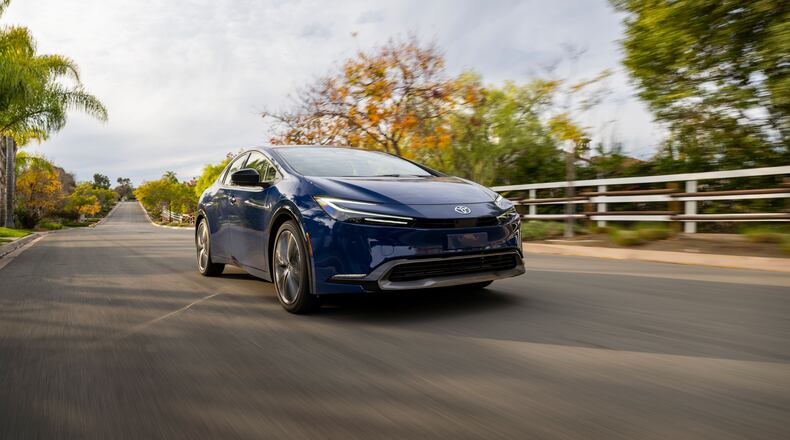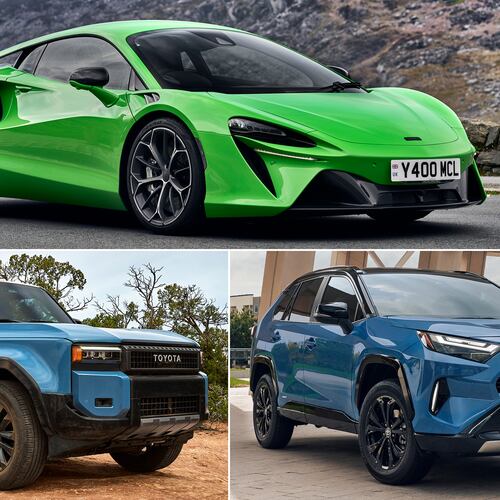New and used car choices keep growing with a broader variety of electrified automobiles: hybrids, plug-in hybrids, and fully electric vehicles. Cox Automotive predicts that one out of every four cars sold in 2025 will be electrified, with hybrids and plug-in hybrids accounting for about 15% of the overall market.
Choosing between a hybrid and a traditional gas-powered car is one of the most significant parts of the car-buying experience. Both vehicle types have advantages and disadvantages, and the best choice for you depends on your needs, driving habits and priorities. Here are some key factors to consider when exploring whether to get a hybrid or a gas car.
Hybrid and gasoline cars: the basics
· Gasoline cars are the traditional automobiles most people are familiar with. They run solely on internal combustion engines powered by gasoline. These vehicles have been around for more than a century and dominate the market with a well-established infrastructure, including widespread availability of fuel and service centers.
· Hybrid cars combine internal combustion engines with electric motors and batteries. The car’s gas engine and regenerative brake system recharge the batteries during operation. Full hybrids can operate on the engine, the motor or a combination of both. The motor assists the gas engine, particularly at lower speeds, reducing fuel consumption. The Toyota Prius is the best-known example of a hybrid, but dozens of hybrid models are on the market.
Credit: SPECIAL
Credit: SPECIAL
Plug-in hybrids (PHEVs) have larger batteries you can charge via an external power source — plugging in — enabling them to run on electric power alone for a limited range. We can discuss PHEVs another time. Today, we’re comparing gas cars and full hybrids.
Factors to consider
Buying a car is a big event. Take your time shopping to feel confident in your decision. Consider these factors when weighing the pros and cons of hybrids and traditional gas-powered cars.
A gas car operates at its peak during highway driving with minimal stops. Vehicles with traditional gas engines can be efficient, as newer models use improved fuel-saving technologies.
A hybrid can be a good choice if your long daily commute is on urban or suburban roads with abundant traffic lights and stop signs. Frequent stops promote the hybrid’s ability to operate on electric power at lower speeds.
Superior fuel efficiency is one of the most compelling reasons to consider buying hybrid vehicles. Hybrids optimize fuel economy by leveraging their electric motors, especially in stop-and-go city driving conditions, which can result in significant fuel savings. Federal Highway Administration figures show the average driver in the U.S. travels about 14,500 miles annually.
Credit: SPECIAL
Credit: SPECIAL
For example, the driver of a 2025 Honda CR-V Hybrid is expected to get about 10 miles per gallon better fuel economy than the conventional gas model, according to Environmental Protection Agency figures, meaning the hybrid could save the driver more than $360 a year in annual fuel costs.
Hybrids cost more to buy than their gasoline counterparts because of the complexity of their technology and additional components. However, you can offset this higher initial investment with long-term savings. The 2025 Honda CR-V in our example has a starting price of $31,450. The hybrid alternative, the 2025 CR-V Hybrid, costs $4,250 more. Using Georgia’s current average gas price of about $3 per gallon, it would take more than 11 years to recover the price difference.
Calculate the total cost of ownership over the car’s life span, including fuel, maintenance and resale value. Kelley Blue Book calculates a 5-Year Cost to Own estimate for most vehicles. Visit kbb.com to read expert reviews and research vehicles to see a cost that includes out-of-pocket expenses like fuel and insurance plus the car’s depreciation (loss in value) over time.
· Maintenance and repairs
Hybrid vehicles have more complex systems than gasoline cars, sometimes leading to higher maintenance and repair costs. However, due to the electric motor’s assistance, hybrids often experience reduced strain and less wear and tear on the internal combustion engine and brakes.
· Environmental impact
Hybrid cars generally produce fewer tailpipe emissions than gasoline cars, making them a more environmentally friendly option. This green quality can be a strong selling point for environmentally conscious consumers, particularly in urban areas where air quality can be a concern.
· Range and convenience
Range and refueling convenience are critical factors for many drivers. Since hybrids use both a gas engine and an electric motor, they generally offer excellent range. You can refuel at any gas station, making long road trips hassle-free.
The 2025 Hyundai Elantra Hybrid sedan, rated at 54 mpg combined, can go up to 670 miles on a single tank in a best-case scenario. The 2025 Toyota Sienna, a hybrid minivan, has an EPA-rated range of up to 648 miles.
· Resale value
Hybrids usually have a higher resale value than gasoline cars due to fuel efficiency and the growing market for environmentally friendly vehicles. Values can vary depending on the make and model and the car’s overall condition. Research the resale value trends for specific vehicles you’re considering.
Making the decision
When deciding between a hybrid and a gasoline-powered car, weigh the pros and cons based on your unique situation. Here are some steps to help you make an informed choice:
· Assess your priorities: Determine what factors are most important to you, such as fuel efficiency, environmental impact, initial cost or long-term savings.
· Analyze your driving patterns: Consider how you use your vehicle daily and which type of car will best suit your driving habits.
· Calculate the total cost of ownership: Look beyond the sticker price and calculate the total cost of owning each type of vehicle, including fuel, maintenance and insurance costs.
· Research and test drive: Spend time researching different models. Test hybrid and gasoline cars to get a feel for their performance and features.
A hybrid might be the right choice for environmentally conscious drivers prioritizing fuel efficiency and lower emissions. A gas car could be a better fit for drivers who prefer a lower up-front cost and travel most of their miles on highways.
Choosing between a hybrid and a gasoline-powered car is a decision that depends on many factors. Carefully consider them and research specific vehicles to make a choice that meets your needs. Whether you switch to a hybrid or stick with a gasoline car, the right decision will ultimately be the one that best fits your lifestyle and helps get you down the road within your budget.
Chris Hardesty is a veteran news researcher and editor who provides advice on buying, owning and selling cars for Kelley Blue Book and Autotrader.
The Steering Column is a weekly consumer auto column from Cox Automotive. Cox Automotive and The Atlanta Journal-Constitution are owned by parent company, Atlanta-based Cox Enterprises.
About the Author
Keep Reading
The Latest
Featured




